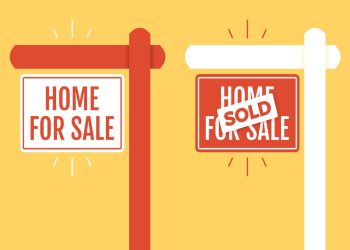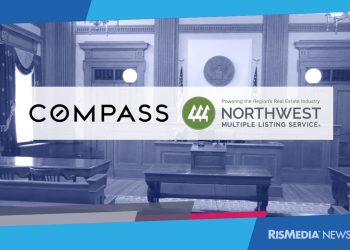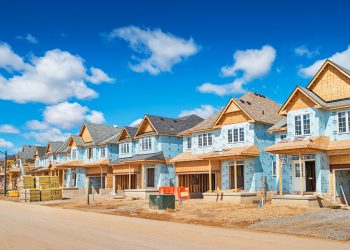
It’s been a rough few months for the economy, and we could all use a little good news.
For America’s 81 million homeowners, here is some: While retirement accounts and the stock market may have cratered, home values are hanging tough.
The National Association of REALTORS® (NAR) reports the median existing-home price for all housing types in March was up 8 percent from March 2019 as prices increased in every region.
And with a proper recovery and the right policies, there is a great chance that home values will remain fairly stable even as home sales temporarily fall while Americans shelter-in-place.
The pandemic also hasn’t stopped real estate transactions outright like in many other sectors. A recent survey of NAR members found that one-quarter of REALTORS® had at least one client go under contract during the second week of April without physically seeing the property. Deals are proceeding with the growing use of new technology like remote notarization.
Even those pausing their real estate transactions still plan to buy and sell once again within a few months.
What’s more, NAR research unveiled earlier this year found that, since 2013, the median family net worth for all homeowners has increased by nearly 15 percent.
Data from the study strongly suggests that “sustainable and affordable homeownership” remains the best opportunity “most households will ever have to improve their long-term net worth and financial security.”
Property ownership is turning into a financial rock for many Americans during this crisis, and Congress has gone to great strides to help protect that investment.
For those who can no longer pay their mortgage, new forbearance rules allow them to put off payments for up to a year without impacting their credit.
Helping people struggling with rent and mortgage payments is a good thing, but we also do not want to spur another crisis down the line for property managers and owners who do not have relief from their obligations. Policymakers should take a comprehensive look and beware of unintended consequences.
For REALTORS® who have seen a dramatic drop in their business (right as the crucial spring buying season arrived), new benefits like forgivable small business loans and unemployment assistance not normally available to the self-employed or independent contractors are helping them weather the storm.
The Paycheck Protection Program (PPP) and Economic Injury Disaster Loan (EIDL) fund were created so quickly that banks had a hard time keeping up with demand. Money ran out for the PPP in two weeks, and another round of replenishment sped through the legislative process. PPP and EIDL grants got billions more in funding and will help keep millions more employed. Congress deserves credit for responding in a bipartisan and lightning-fast way even if the rollout of those programs was less than perfect.
We’ve heard from many REALTORS® around the country who have secured PPP loans and saved scores of jobs. People like Anthony Lamacchia of Waltham, Mass., who reports he can now keep all 47 of his employees on the payroll.
The strength of the housing sector will be critical to our national recovery. After all, the real estate industry makes up nearly one-fifth of the U.S. economy, and every two houses sold creates one American job.
America has been experiencing a housing shortage for years as demand for homes has consistently outpaced supply in most major U.S. markets. NAR’s Chief Economist Lawrence Yun has stated his expectation that, once we get through the worst of this crisis, housing demand will reemerge quickly. Our economic recovery won’t be a slow-build like what followed the 2008 financial crisis.
America’s financial and lending systems look vastly different today than they did before the Great Recession shook America’s economic core. Changes to strengthen lending standards and eliminate loose credit have pushed default and foreclosure rates toward record lows.
It has never been more clear that property ownership is still one of the best and safest investments an American family can make.
Economic downturns and public health crises—no matter how severe—will never change this fundamental fact.
But what has become even more apparent is that during this crisis, home has become more important than ever.
If Congress continues to be a champion of the American people and protect homeownership, by all indicators, real estate can and will help get our economy going again.
Shannon McGahn is the senior vice president of government affairs for the National Association of REALTORS®.












As of today, we have thirty-six million unemployed people. Without any douth, we’ll add up to that number in the near future. In case some of us did not notice, we are in “virus depression”. If we calculate everything perfectly, this will go a minimum of 4-5 years. If we make a mistake, add another five years to that number. We are still carrying the burden of the last cessation. At this point, qualifying for a loan is harder. Now, we have to closely look et the appraisal reports. In the RE industry, it all starts and ends with the commercial RE market. Also, watch the stock market. You will read the future.
Unfortunately the “other shoe” has yet to drop. Recovery will largely depend on lender policies.
The 2008 to 2010 real estate depression was the result of lenders enforcing policies of retribution against those suffering foreclosure and short sale. While forbearance sounds good requiring those under forbearance to make all past due payments anytime soon will cause severe problems similar to sub-prime repricing. Deferment of payments to the end of the loan will work, bust most forbearances today are not deferments.
Most of those on unemployment will not pass the two years consecutive employment test. Servicers are telling us that even those with forebearances will be disqualified, regardless of what the CARES rules say. We may lose up to 30% or more of the otherwise interested buyers.
The spreads for lenders are terrible, especially for FHA and VA loans. Lenders, if they are honest, were already thinking about scuttling those loans. If no one forces lenders to change traditional qualifying the real estate market will take a severe hit, taking with it the US economy for a long while, just like 2008 – 2012.
As a former Regional Vice President for a very large bank I hope to sound the alarm. Wall Street, the FED and banks can only be our friend if they are able to ignore traditional lending models. I remain hopeful, yet dubious without pressure, that will happen.